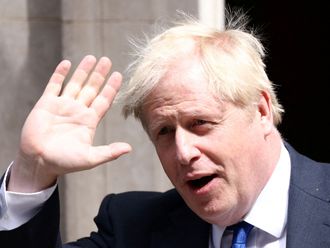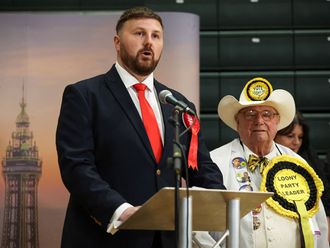Barcelona: What’s going on in Catalonia now?
The regional president, Carles Puigdemont, has repeated his determination to declare independence from Spain days after 90 per cent of participants in a unilateral referendum voted for Catalonia to become a separate state. Speaking to the BBC on Tuesday night, Puigdemont said once the government had a final tally of votes, it would “act at the end of this week or the beginning of next”.
Can he do this?
The Spanish government is adamant that he cannot and the country’s constitutional court ordered the referendum to be suspended last month. Puigdemont argues his government has been left with no choice but to proceed unilaterally as repeated attempts to discuss the matter with the Madrid government have been ignored. He also says the referendum results gives him a clear mandate.
So what happens next?
Just as Madrid will not recognise the results of a referendum both it and the courts have declared illegal, so it will not recognise an independence declaration. The Spanish prime minister, Mariano Rajoy, still has the option of tackling the independence challenge by invoking article 155 of the Spanish constitution. The article, which has never been used, allows the Spanish government to step in and take control of an autonomous region if it “does not fulfil the obligations imposed upon it by the constitution or other laws, or acts in a way that is seriously prejudicial to the general interest of Spain”.
How would that go down?
Given the police violence that marred Sunday’s poll, leaving hundreds of people injured, such a move would go down extremely badly. Not only would it galvanise support for Puigdemont’s position, it would also bring huge crowds on to the streets in protest.
Tensions are still running very high and many Catalans are angry that the thousands of Spanish Guardia Civil and national police officers who tried to halt the referendum are still deployed in the region.
Puigdemont warned that the triggering of article 155 would be another in what he called “a long list of mistakes” by the Spanish government.
“After each mistake, we have become stronger,” he told the BBC. “Today, we are closer to independence than we were a month ago. Each week, after every mistake, we’ve gained more support from society; a bigger majority in Catalonia who do not accept this situation.”
He said that the use of article 155, and the possible arrest of members of the Catalan government — including himself — could be the “ultimate mistake”.
Where is the Spanish king in all this?
King Felipe made a rare television address on Tuesday night, in which he accused Catalan authorities of attempting to break “the unity of Spain” and warned that their push for independence could threaten the country’s social and economic stability.
He made no reference to Sunday’s violence in the speech, in which he said the government had a duty to “ensure constitutional order”.
Any chance of some last-minute mediation?
Not so far. Puigdemont and other Catalan politicians have made several calls for the EU to intervene to help solve the crisis, but the bloc has so far kept out of what it views as an internal matter for Spain.
“Violence can never be an instrument in politics,” the European Commission said in a statement on Monday. “We trust the leadership of Prime Minister Mariano Rajoy to manage this difficult process in full respect of the Spanish constitution and of the fundamental rights of citizens enshrined therein.”












